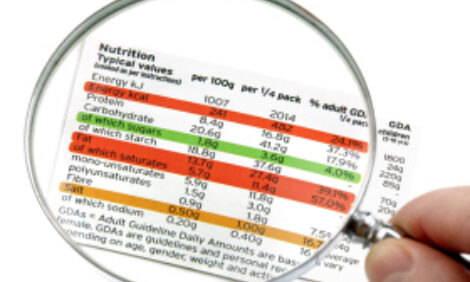



Consumer Perception: Why Be Afraid to Flaunt Straight A's?
US - Sustainability and welfare must be benchmarked in modern livestock production, industry spokesmen are telling producers at the National Cattlemen's Beef Association meeting this week in Nashville, writes Michael Priestley.This is according to figure heads at Tyson and McDonald’s who acknowledged the growing need for labels and checklists in order to please an increasingly savvy consumer market, while addressing the 2014 Cattle Industry Convention in Tennesse.
Spearheading consumer awareness are animal welfare and sustainability, illustrated by US shoppers being willing to pay 20 per cent more for products denoting animal welfare friendly production.
This statistic appeared in Dr Karen Genswein’s lecture to the NCBA in Nashville earlier this week.
The Alberta animal welfare expert and technical adviser for the Canadian Beef Export Federation described how she had seen public concern rise dramatically over the last 10 years.
This growing concern is being matched by a food industry response, which Dean Danilson, Vice President of Tyson Foods Office of Animal Well-Being said is coming in the form of check lists and audits.
He outlined Tyson’s FarmCheck programme, which was rolled out across its pork division in 2012 and piloted across beef and poultry last year.
The programme does not please everyone, but Mr Danilson made the point that, if you have nothing to hide, there is little to be afraid of.
McDonald’s Vice President for corporate sustainability, Bob Langert, advocated this standpoint. He wishes to see 100 per cent transparency at McDonald’s.
While acknowledging the potential legal risk involved, Mr Langert said: “If you don’t wish to be 100 per cent transparent, then it could be a sign that you need to change something.”
He explained McDonald’s recent pledge to source verified sustainable beef saying welfare fell under the sustainable banner, both in terms livestock and human welfare in the supply chain.
He said this was part of McDonald’s holistic approach to sustainability that would see producers make money and save money.
In terms of what changes are needed on farm to be sustainable, Mr Langert sees current farming very close to what sustainability is.
“There aren’t many poor performers out there,” reassured Tyson’s Mr Danilson. “But, the ones that are drag the industry down.”
Under Tyson’s FarmCheck programme, a simple ternary grading system rates a farm as to whether welfare is acceptable, needs improvement, or is unacceptable.
“In a way, it is rather like being back at school. Be proud of getting the equivalent of A’s on your check list card,” said Mr Danilson.
If a poultry farm ‘needs improvement’ or a hog unit is ‘unacceptable’ then Tyson has pledged to work with unit managers and owners to get the desired goal, he added.
He said that welfare programmes are not exercises to get rid of producers in Tyson’s supply chain but are geared to strengthen farms within a more consumer focused supply line.
Furthermore, he revealed an alarming trend in sow housing that had been unearthed by auditing and assessments.
Explaining the inadequacies of modern stalls with bigger contemporary sows, Mr Danilson said: “A fourth or fifth parity sow today is a much bigger animal than it was 20 years ago, they are like small elephants.”
Another key lesson Tyson noted from 2013 was the need to improve and adapt the beef segment of the Tyson farm check programme with more adoption of the Beef Quality Assurance programme (BQA).
Agriculture’s current juncture means the beef sector is well placed to make some big assessments to spur change.
He said: “We are blessed in the beef industry not to have lightning rod issues facing us today which the swine, broiler, egg and dairy industries all have.”
For this reason, Tyson is going to assess its FarmCheck beef products while the industry has time to do so. This, Mr Danilson added, will allow Tyson to address some of beef’s pressing sustainability issues.
This kind of self-evaluation will move the livestock sectors closer to what conscious consumers want.
Mr Langert explained that McDonald’s reinvented itself back in 2002 by selling healthier products. This was in response to its share price dropping to $12.
And just like yoghurts and salads have been the new products to cater for consumer wishes over the last ten years, the integrity of the sources and systems are believed to be vital for consumer satisfaction in the years ahead.
Mr Langert concluded that the biggest improvement area for the US is the ability to ‘measure stuff and prove it’. Only this, he said, will ensure continuous progress.









